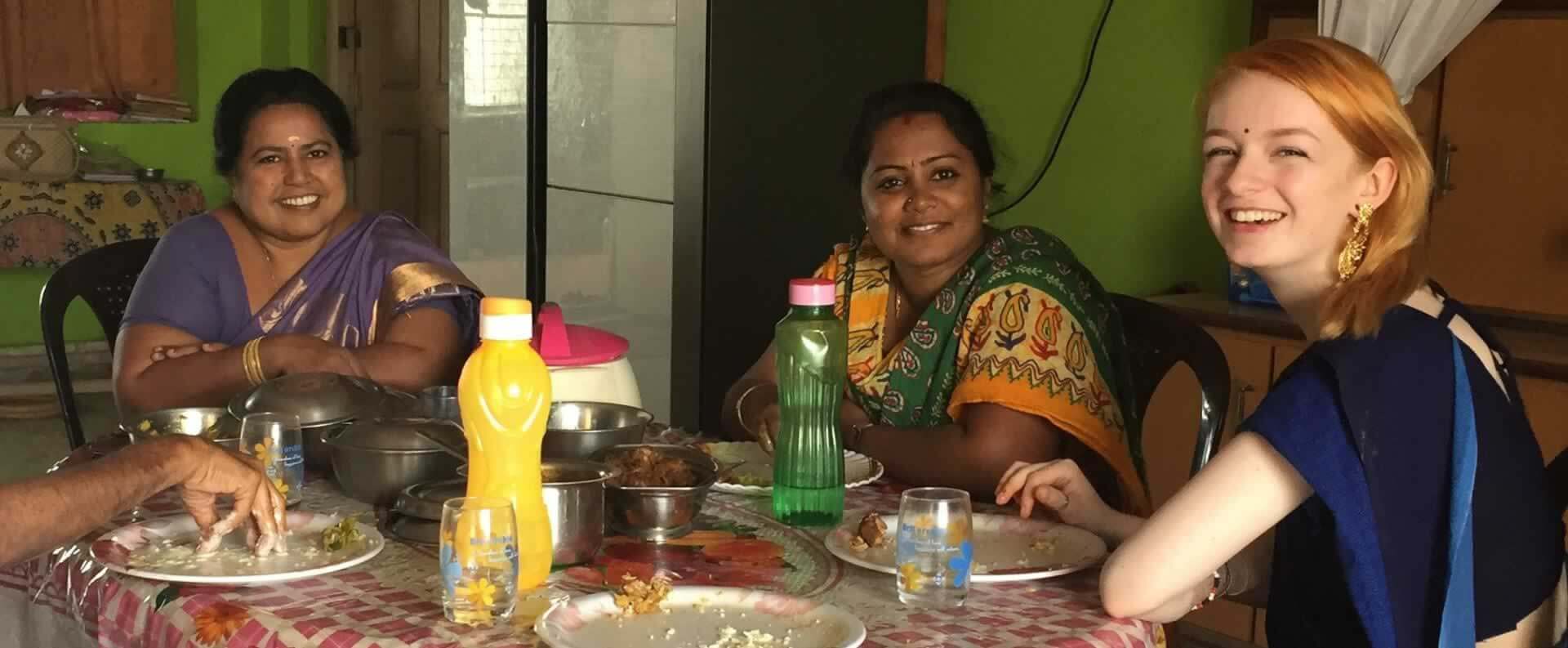
Ways to Raise
Volunteer Fundraising
Out of unlimited possibilities for fundraising, select the methods which work for you.
Events fall broadly into four categories – each comes with its own strengths and limitations, so make sure you are varying your approach.
We have described the four types below and provided example events. Please use our examples as a springboard for your creativity! You can tweak any idea to suit your circumstances, and target them towards your strengths and communities.
Most Volunteers use a variety of the four types below to reach their fundraising target.
Donations
This includes any donation that someone makes out of a desire to support you, or a sponsored activity where you ask for sponsorship towards your goal. This relies on community generosity, so we recommend doing only one or two throughout the duration of your fundraising.
- Write to over 100 Charitable Trusts.
- A long distance walk, hike, or cycle.
- Sponsored silence.
- Speak only in the language of your Project country.
- Do The Kiltwalk (Scottish Volunteers)
- Sponsored T-Shirt (get companies to pay for ad space on a custom printed t-shirt you will wear to all future events & your Project).
- Donation boxes at local shops.
- Chug a drink (sponsors add ingredients – obviously limit to safe options).
- Supermarket bag pack.
- Non-uniform day at school.
- Approach local businesses for sponsorship.
- Shave your hair.
- A 24-hour challenge (there are lots of good examples online!)
- Ask for Birthday donations rather than gifts.
- Litter pick.
- Wild swimming.
- Sky dive.
- Social media blackout.
- Smarties tubes – give them out (full) and ask contributors to fill them with change once they’ve eaten the smarties.
- Fines at sports events going to you.
Top Tips
- Only ask a community once
- Add an interactive element
- Combine with a competition or raffle
- Give yourself plenty of time
Entertainment
This is any event which you invite people to attend for a fun activity. Arranging a day, afternoon, or evening together can be rewarding but takes a lot of work. For this reason, we recommend a maximum of one every 1-2 months, depending on the complexity.
- Coffee morning.
- Race night.
- Quiz night (or Quiz and Curry night).
- Ceilidh or Ball.
- Country-themed dinner party.
- Film night.
- Open garden.
- Gin or Whisky tasting.
- Knit and Natter.
- Dunk the teacher/Volunteer.
- Run a session at Scouts or Brownies.
- Bingo.
- Band night/Battle of the bands.
- Book swap.
- Clothes exchange.
- Karaoke night.
- Games night.
- Wine and cheese night.
- Fantasy Football league.
- Village adventure trail (people buy a map and look for displays).
- Charity auction.
- School/work lock-in.
For the events listed above, make the most of your time! All of the above could be combined with minigames between acts, and you could sell crafts or refreshments. “Minigames” could include:
- Raffle.
- Heads or tails.
- Guess the weight (or number) of sweets in a jar.
- Beat the Keeper.
- Tombola.
- Pin the tail (on the Volunteer!).
- Treasure map (people buy squares on a grid, one of which wins).
- Name the teddy bear.
Top Tips
- Don’t be afraid to repeat popular events
- Add ‘extras’ to each event to make the most of it
- Advertise your JustGiving at each event
Sales
You can sell goods as fundraisers – anything niche, homemade, crafty, even old possessions. Your Spring clean can become a fundraising event! Just remember that if you advertise it as a charitable event, it counts as fundraising and must be sent to the charity (us) within a month.
- Cake sale.
- Handmade craft sales (bookmarks, jewellery, bracelets).
- Sell clothes second hand.
- Garden sale (combine this with an open garden!).
- Coffee pop-up.
- Lemonade stand.
- Set up an easyFundraising page so your friends can earn you money while they shop.
- Artwork (paintings, caricatures, cards).
- Car boot sale.
- Clothes exchange.
- Sell unwanted items on eBay.
- Sell refreshments at local sports games or athletics events.
- Refreshments at your own events! This could include a bar or snacks depending on licensing and venues.
- Sell Krispy Kreme doughnuts.
Top Tips
- Add sale items to existing events
- Look for farmers markets or fetes, and ask for charity rates
- Little and often will get you to your goal
Services
Similar to sales, these are professional services which you can offer as part of your fundraising. This is where your Strengths can really come in handy as you think about something which you can advertise.
Again, people will be generous with rates/fees if you advertise it as a charitable drive, but you must then send your income to us within a month if so (without the charity/fundraising element, this is essentially a part-time job, which is your own personal money).
- Nat 5/GCSE tutoring (especially if you have good grades in a specific subject!).
- Language tutoring (people want to learn languages outside school as well as for qualifications).
- Dog walking or pet-sitting.
- A part-time job.
- Car-washing.
- Garden work.
- Odd jobs.
- Babysitting.
Top Tips
- Emphasise the charitable element
- Don’t be afraid to ask for more
- Little and often, again, will help you reach your goal
Personal Money
We do not prescribe how you reach your fundraising target, as long as it is ethically sourced.* Some Volunteers with part-time jobs save these earnings as a back-up, and top up their total at the key milestones where necessary. Some have savings, or use birthday or Christmas money for their fundraising.
As outlined on the Sending in Money page, we do not expect you to send in personal money until you are certain you wish to use it for one of our fundraising milestones (50%, 90%, 100%). Some of the fundraising ideas above can work as private earnings or fundraising events, and the difference is based on how you advertise the event.
If you advertise ‘dog-walking to fundraise for my Volunteering in China’, this is a charitable event and clients will expect their money to go to the charity (so you must send it to us within a month of receiving it); if you simply advertise ‘dog-walking services’, this is a private job and the money is yours until & unless you decide to donate it to us for your fundraising.
* If you rob a bank, we may revoke your place. In all seriousness, we can only accept donations which align with our ethos and values – which includes being both legal and ethical.
Access Fund Bursary
We are committed to ensuring that our volunteering opportunities are accessible to young people of all backgrounds. Volunteers who meet any of the criteria below are encouraged to apply to our Access Fund Bursary:
- My household income (parents/guardians) is below £35,000.
- My parents/guardians receive Income Support or Universal Credit.
- I am care-experienced (see Project Trust’s definition below).
- I am a young carer.
- I receive an Education Maintenance Allowance or am entitled to free school meals.
- I have a disability.
- One of my immediate family members (parents/guardians/siblings) has a disability.
- I don’t have parental or familial support for taking my placement.
- I can’t fundraise in my local community.
- Other exceptional circumstances have inhibited my fundraising efforts (if you wish to apply on this basis, please approach the Fundraising Support Team for advice).
Care experienced is an umbrella term which can mean children or young people who are:
- Previously looked after, where at some point in their lives they have had any of the above experiences. The child or young person may never have been formally looked after.
- Looked after at home through a Compulsory Supervision Order (CSO).
- Looked after away from home in a residential children’s house, in a foster placement or in a kinship placement (Looked After or Non Looked After).
Our bursary is generously funded by the Allan and Nesta Ferguson Charitable Trust, and has enabled us in the past to support Volunteers with amounts of up to 50% of their fundraising target, depending on numbers of awards in that cohort.
In order to apply, please complete the digital application form below. You are welcome to discuss your application with Tom prior to submitting. We advise that you start fundraising first, so you can describe some events or efforts which you have already undertaken, before submitting an application.
Tom’s role as Fundraising Support is to advise you on what the Panel will be looking for, and what kind of evidence is required. He will advocate your case to the Panel, so please discuss your application with him before submission.
We need notice to be able to gather the Panel who have the final say on bursary awards. To this end, please make sure that you submit applications before your Training course in order that they can be considered before your Departure date.
Although these criteria are used as a guideline, we do consider applications on a case-by-case basis, so if you feel you are at a disadvantage but do not meet the above criteria for financial support, please email fundraising@projecttrust.org.uk for more information.
